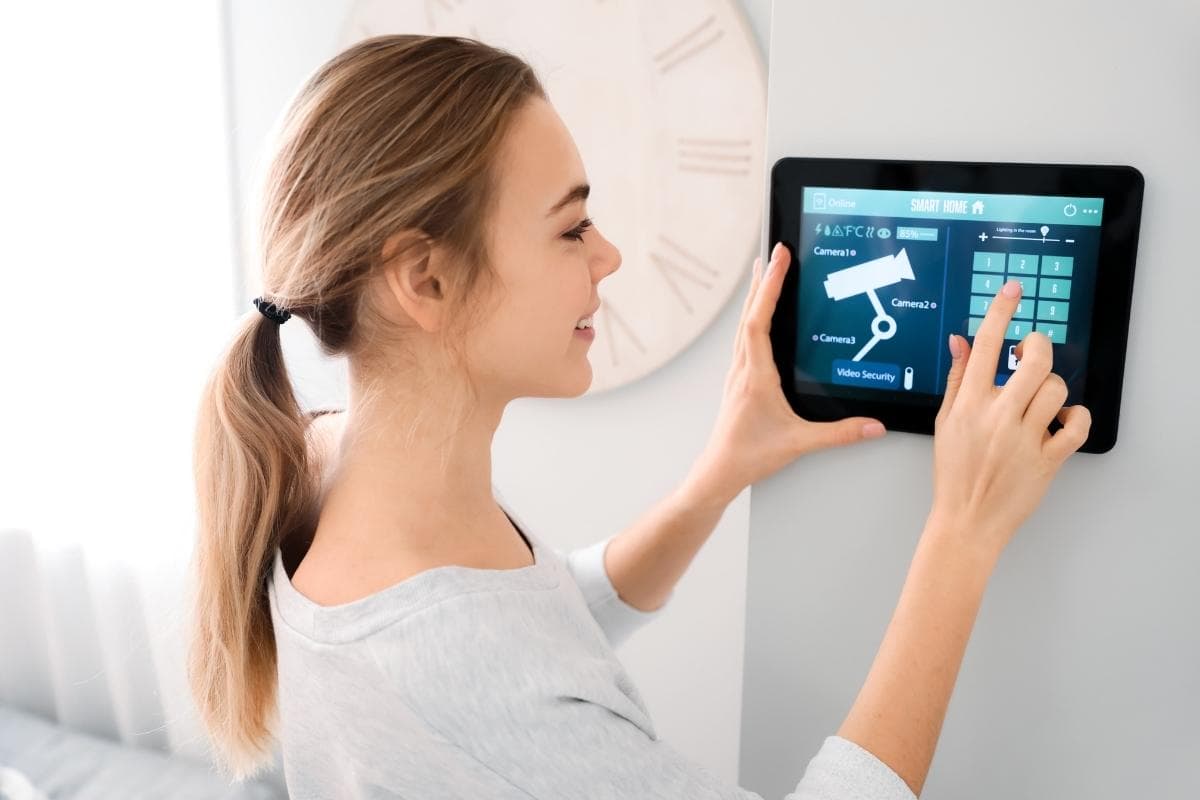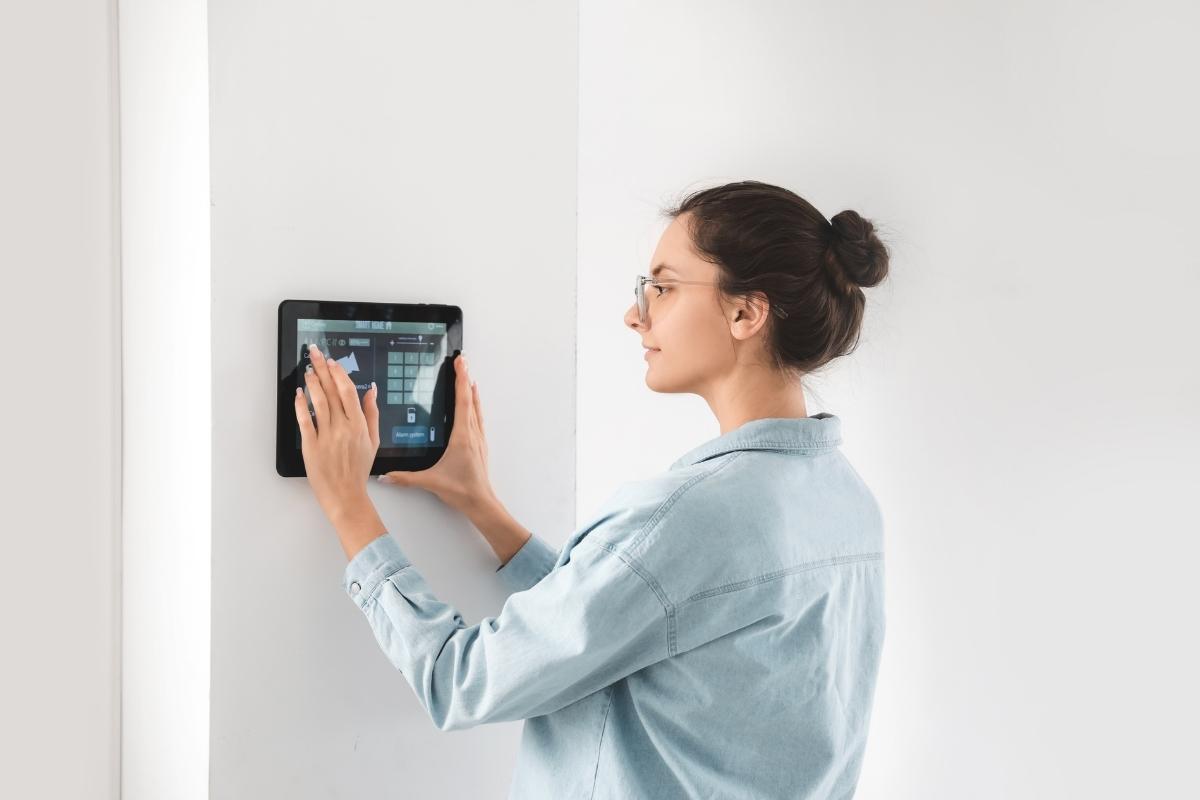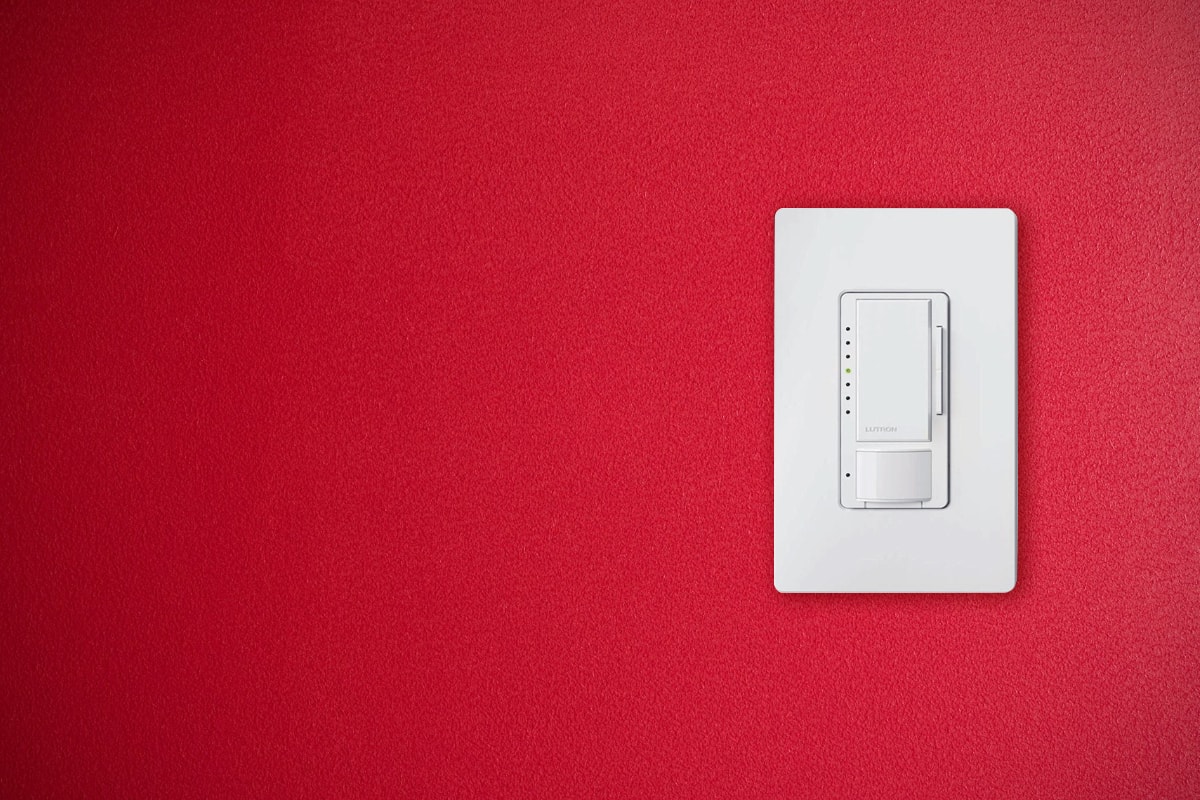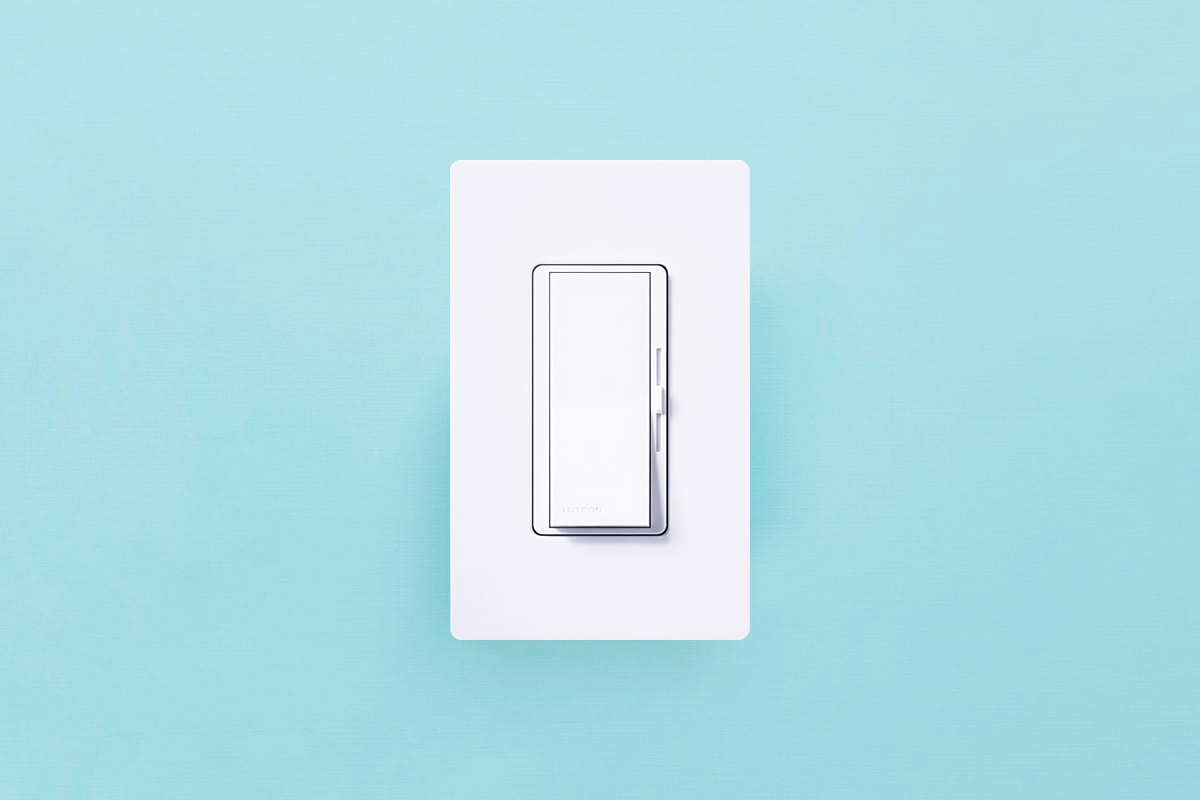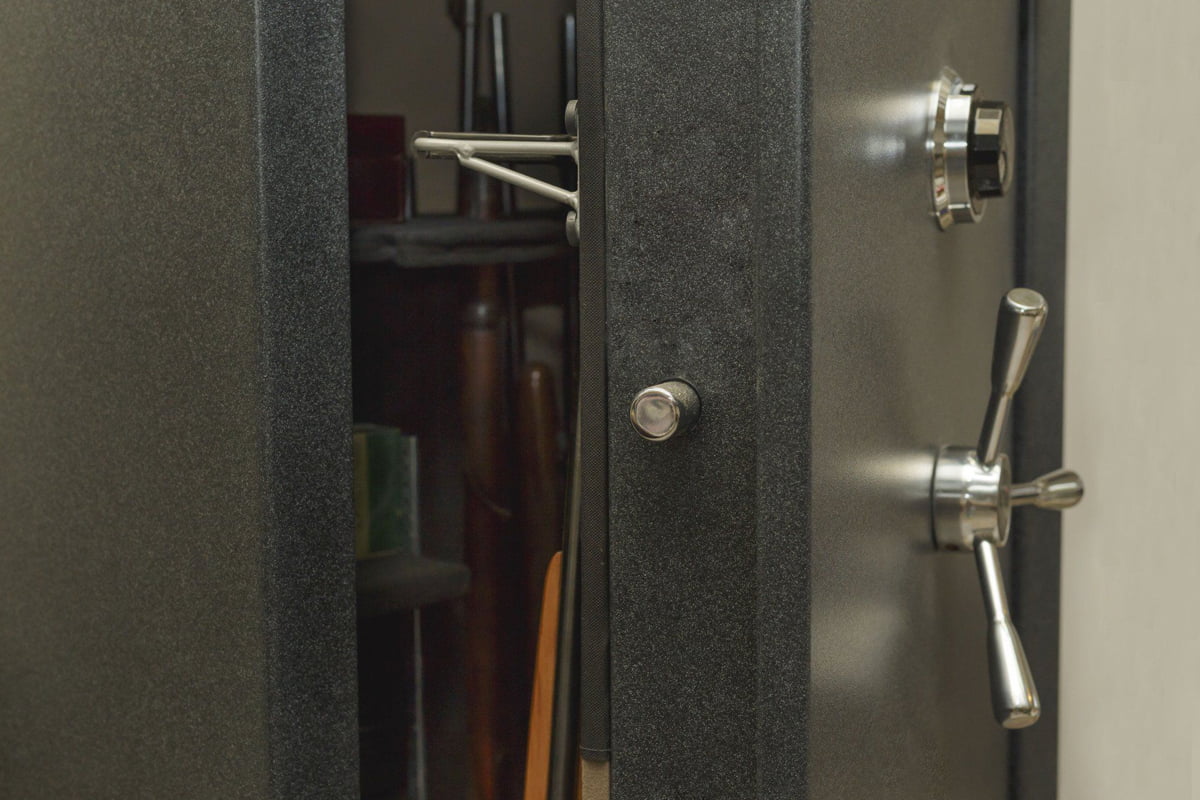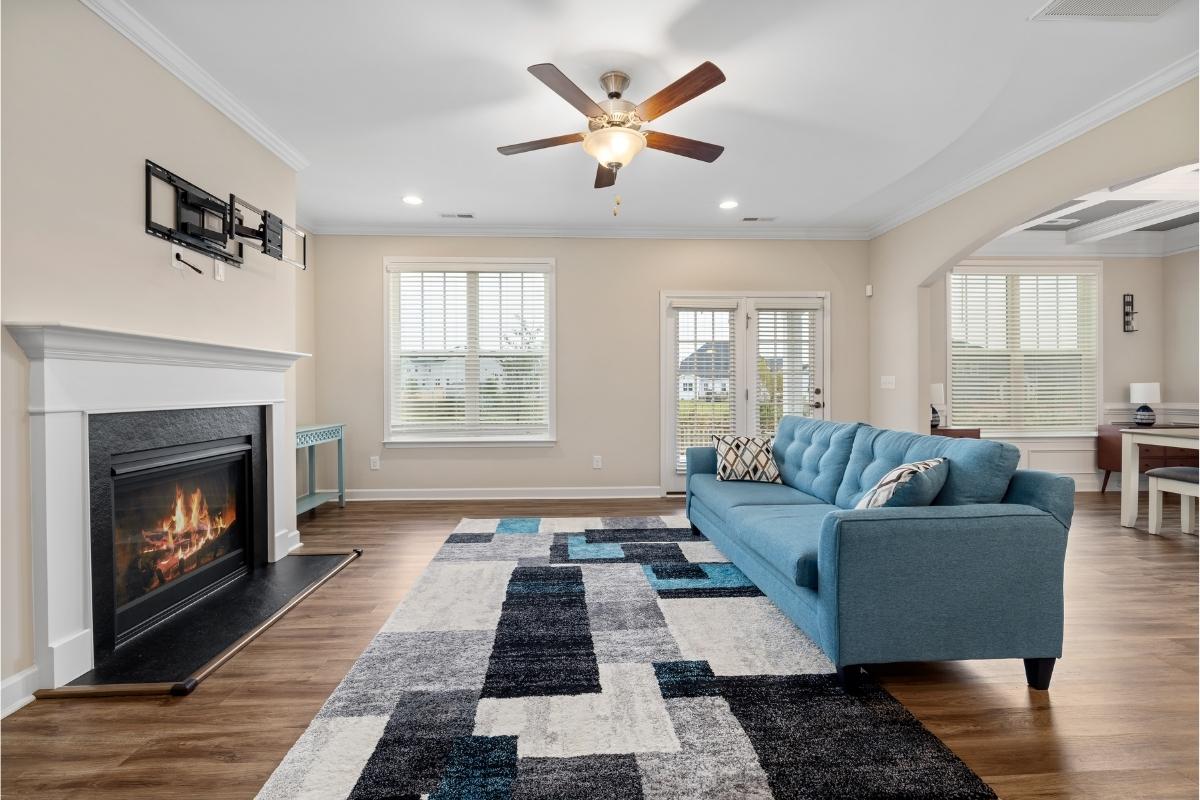If you’re looking to secure your home, but feel confused or overwhelmed to the point of paralysis and indecision, don’t worry. We’re here to help. We’ve put together a very easy-to-follow guide to walk you through the process of selecting a home security system.
Follow these 5 simple steps to clear up any confusion and help identify the right home security system and the right company to best meet your needs and help you protect your family and home.
Understand Your Home Security Needs
Understanding your needs, expectations and lifestyle choices as it relates to home security is the first step to determining what system will work best for you and provide you with the level of service and functionality you expect and deserve.
The following questions will help you get a better understanding of what type of home security system user you are and what type of security system best fits you and your needs.
Owning your home will give you more flexibility when it comes to the type and installation of your security system. If you own your home, you may opt to have a system that is installed by a professional. If you’re renting, you’ll want to look for a system that is wireless and can be set up without making any permanent alterations to your residence. (i.e., no drilling or running wires through walls, etc.)
Do you plan to move in the next three years?
Even if you currently own your home, the answer to this question may affect your options. If you plan to move, you do not want to be in the middle of a multi-year service contract with a system you can’t easily take with you to your next home.
Would you like to control your system remotely?
For many of us today, our mobile phones are an essential and central means of living and managing our lives. Many of today’s home security systems include mobile or interactive service capabilities, which allow users to remotely access, manage and control their home security systems through their mobile phone or other web-enabled devices.
However, not every plan from every provider offers this functionality or similar capabilities, so if mobile system control is important to you, it’s essential to make sure it is included in the system and monitoring plan you’re considering.
Do you want a system with professional monitoring?
Today, several home security providers offer professional monitoring as an available option, not a requirement, to their home security systems. For homeowners only interested in receiving notifications of alarms and alerts from their system while they’re away, getting a self-monitored system may be the right option. But, it’s important to understand that without professional monitoring, when your system does identify and alert you to an emergency event (such as a break-in or fire), you or someone else on your notify list will need to contact emergency personnel to get authorities dispatched.
If you do decide to go with a self-monitored system, be sure someone who doesn’t live in the same house is included in your notify list, and make sure they can be entrusted with the responsibility. Remember, if you’re home alone when an emergency occurs, there is no 24/7 monitoring station receiving notification of the emergency. Getting in touch with and dispatching the proper authorities will be your responsibility.
Are you a DIYer, Technophile or Technophobe?
Many of today’s top-rated security systems can be set up without a professional technician entering your home. These wireless systems are easy enough for most homeowners to set up in less than 30 minutes. And while these wireless self-setup systems offer convenience, portability and ease of use, some people prefer, even though it is not necessary, to have the peace of mind of a professional doing the work.
What do you NEED your system to do? And what you WANT it to do?
Today, many home security systems are capable of not only securing your home and helping you protect it from the risk of break-ins, fire, gas and other dangers but also allowing you to control and manage your home like never before. It’s extremely important to identify what you need, what you want and what you can do without before selecting your system.
Use the following list of common system capabilities and identify needs and wants.
Security & Protection
- Video Surveillance
- Carbon Monoxide Monitoring
- Smoke/Heat Detection
- Intrusion
- Water leaks
- Temperature Monitoring
Home Automation
- Light and appliance control
- Remote door locks
- Thermostat control
System Management
- Keypad or Touchscreen Control
- Mobile System Control
- Mobile Notifications
Understand the Basics of Home Security
Understanding the different types of security systems, as well as the technical terms and industry jargon used to describe the equipment, functions, capabilities, and monitoring services is extremely important when making your home security decision.
We’ve put together a comprehensive glossary that you can use to help define and explain the different terms used by home security companies when describing their product and service.
Here are some of the most important and most common terms you’ll encounter as you research home security:
- 24-Hour Monitoring: System communication and alerts from your home security system with the monitoring center.
- Two-Way Voice:
- Wireless vs Cellular: Wireless refers to equipment that uses radio frequencies to communicate between sensors and the control panel. Cellular refers to how the system communicates with the monitoring center.
- DIY Installation: Typically, systems designated as DIY or Do-It-Yourself installation use wireless equipment and adhesive backing on the sensors to allow most homeowners to set up their security system quickly and easily and without the inconvenience of having to schedule time for an installer.
- Equipment Warranty: The terms and conditions regarding the company’s policy on covering costs to repair or replace defective or malfunctioning equipment for their customers. Warranty coverage varies among providers, so it is important to understand how long your equipment is covered – especially if you sign a multi-year service agreement.
- Remote Access: Ability to control and access your security system while away from your property. Typically, this is accomplished through a web portal or smartphone application.
- Personal Security Devices: Also called emergency or medical alert devices, these small devices can be worn as pendants or carried in the pocket and have a push button that can be used to send an emergency alert to the monitoring center by the user.
- Relocation: Offered by some companies, relocation kits or guarantees assist you with transferring your home security system should you move. If you plan to move during the service contract for your home security, be sure you understand your company’s policy and process for moving your system.
- Sensors: Sensors are used to identify, detect and signal your control panel when something occurs in your home.
- Upfront Cost: This is the total cost you’ll be initially charged for your home security system, monitoring and any additional activation or installation fees by your alarm company.
What to Consider Picking a Security Company
There are three aspects of your home security system you should consider when looking at available options from providers:
- Monitoring
- Installation
- Home Automation
- Customer Service and Support
Monitoring
Professional monitoring service allows your home security system to communicate with your alarm company’s central station to send notices and alerts when an emergency occurs.
Your security system will use one of three different methods to communicate with the central station:
- Landline: Traditional home security systems utilize your existing phone line to communicate between the control panel and the monitoring center. This type of monitoring can be disrupted by a would-be thief by severing the phone line outside the home, rendering the system unable to communicate with the central station.
- Broadband/Wi-Fi: Similar to the landline, this type of monitoring requires a physical connection to your cable or internet service line to signal the monitoring center. While broadband offers one of the fastest means of transmitting a signal, it is susceptible to power outages as well as the cables being severed outside the home.
- Cellular: Considered to be the safest means of communication, cellular monitoring does not require a physical connection to communicate with the central station and is fast, effective and not subject to being disabled by a severed wire.
Installation
More and more homeowners are opting for security systems available as a DIY or self-setup installation. Requiring less time and no tools, as well as the convenience of not having to plan around a technician’s schedule, self-install systems provide the same level of security as traditional wired systems with fewer hassles and inconveniences. Professional installation may still be preferred by some homeowners, especially if they are planning extensive home automation capabilities from their system.
Home Automation
Many of today’s security systems are also capable of helping you automate and manage your home as well as your home security system with your mobile phone or computer. With home automation and remote access control, you can arm and disarm your security system, control remote door locks, control lighting and even adjust your home’s thermostat or access live video feeds to keep an eye on your home no matter where you are.
Customer Service and Support
Looking beyond the equipment, capabilities and monitoring offered by a security company, you should also consider the company’s reputation when it comes to customer service and support.
How quickly do they respond when something goes wrong? What are current and past customers saying? Does the company stand behind their product and service and treat consumers properly after they’ve become a customer? Will they work with customers to keep them happy?
Research Systems and Companies
Once you’ve put together your list, it’s time to narrow down your options and select the right system and provider for you.
For example, let’s say you’ve identified you may move in the next two years and while you’re not extremely handy with tools, you’re confident in your ability to peel adhesive backing and press sensors into place, and you need to be able to access and control your system from your phone.
You would want to look at companies that offer a wireless security system you can set up yourself and that include interactive services with their monitoring plans. Frontpoint offers one of the safest DIY wireless security systems utilizing available with interactive services and 24/7 professional monitoring through cellular communication with no installation or activation fees.
Or, maybe you own your own home and have no intention of moving in the near future and while you’re pretty good with a hammer, you’re looking for a system with powerful home automation capabilities, like remote door locks and would prefer a professional technician tackle the job. Vivint offers professional installation and is well-known for the advanced technology and home automation capabilities of their systems.
Before you commit to an alarm company, make sure you understand your obligations and rights. If the company offers a trial period, make sure you know when it will end and what the return process will be, and if there are any cancellation or ‘restocking’ fees will be your responsibility if you choose to return the system.
Choose Your System
After narrowing down your options to the providers that offer the system, service and installation type that meets your needs, you can select the one that stands out as the best choice for you. Don’t forget to read online customer reviews as well. These reviews will give you a sense of the level of service provided by the companies you are considering.
To help get you started, we’ve included a quick list of some of the leading providers and what they’re best known for – in the industry and with their customers.
Monitoring – Frontpoint
If you’re looking for the safest monitoring method available, you’ll want to select a system that uses cellular communication. Frontpoint Security offers 100% cellular monitoring with all their systems and all their plans.
Installation – ADT, Guardian, Vivint
If having your home security system installed by a professional is your preference, consider companies like ADT, Guardian and Vivint, all of which offer systems installed by trained technicians.
Home Automation – Vivint
Home automation is becoming a more and more integrated component to a comprehensive home security and management system. Companies like Vivint, which has long been recognized for their commitment to cutting-edge technologies, offer robust home automation capabilities with their professionally installed systems.
Customer Service and Support – Frontpoint
Recognized as a leader when it comes to customer experience, Frontpoint continues to be one of the top-rated home security providers. If you’re looking for a company offering the latest wireless technology, cellular monitoring and a proven track record of exceptional customer service, take a deeper look at Frontpoint.

